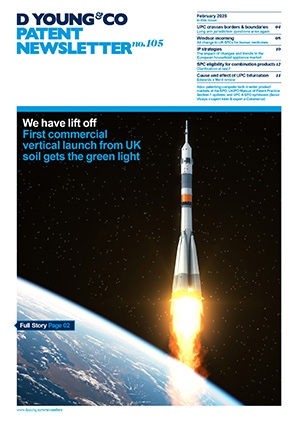We have lift off: first commercial vertical launch from UK soil gets the green light
The UK’s Civil Aviation Authority (CAA) has just granted the first vertical launch licence for a launch site at the SaxaVord Spaceport in the Shetland Islands in Scotland.
The vertical launch licence has been awarded to the German space technology company Rocket Factory Augsburg (RFA). RFA intend to launch a 30 metre tall “RFA ONE” rocket from the north of the island of Unst. This is the northernmost member of the Shetland islands. This represents an extremely exciting development for the UK’s space sector.
When you think of space flight, you probably envisage grainy footage of Apollo-style launches; white rockets bound for the stars. Readers of a younger vintage might see in their mind’s eye recent launches of the Falcon 9 rocket. These are examples of vertical launches, where rockets are launched vertically. This is as opposed to horizontal launches where an aircraft, requiring less thrust and fuel, launches horizontally and carries, and during flight releases, a payload that has been attached to the aircraft.
The first space launch from UK soil was on 09 January 2023 from Spaceport Cornwall, where a “LauncherOne” rocket carried by Virgin Orbit’s “Cosmic Girl” aircraft was transported to space. The aircraft left the spaceport runway and set out towards the Atlantic before releasing the rocket. Since then the UK has gone from strength to strength, now boasting a space sector employing around 50,000 people.
The recent launch operator licence awarded to RFA indicates the UK’s growing presence in the space sector. The licence was granted under consideration of some key factors, such as:
- how the safety of the launch would be maintained;
- how international obligations would be met; and
- how the impact of the launch on the environment could be mitigated.
The UK aims to position itself as a reliable, forward thinking, sustainable and highly valuable commercial partner for companies interested in either form of launch (horizontal from an aircraft or vertical from a vertical launch site). This should render the UK as a highly-attractive location for launches for a variety of companies, but particularly for those located in Europe.
The UK sits as third in the world (behind the US and China) as the country with the most satellite launches (including joint launches). The UK’s commitment to developing and commercialising space was strengthened in 2024 by the award of £33 million from the UK Space Agency’s (UKSA) National Space Innovation Programme.
The UK is therefore openly embarking on a project to make the UK an extremely attractive location for space technology to be developed and launched. As such, your intellectual property for space technologies should ideally include the UK as a territory of high interest. This is doubly so, noting the UK Intellectual Property Office’s (UKIPO’s) relatively cheap fees for filing and prosecution.
While there is no patent jurisdiction for space, there are provisions for providing protection of space technology relating to the territories in which satellites are registered, or the territories from where they are launched. With a large number of launches taking place in the UK and a large number of satellite registrations in the UK, intellectual property protection in the UK has growing importance for space technology companies.
It is also worth noting that the process of obtaining patent protection in the UK is both fast and economical. UK government fees are very low and there are options to accelerate prosecution, meaning a patent can be obtained really very quickly.
Many of our clients select the UK as their priority filing location and we are able to obtain search and examination results within the first 12 months, before a decision on a PCT filing has to be made.
There are also potential tax saving opportunities using a system known in the UK as the “Patent Box”. The Patent Box allows for a reduction in corporation tax for companies with products covered by intellectual property rights. This is an arrangement that many countries across Europe have with varying levels of corporate tax relief. If you need any more information on the Patent Box please get in touch.
Another interesting and unusual aspect of the UK patent process is the ability to register a UK-granted patent in other jurisdictions around the world without further examination. There are a variety of countries that allow this process and depending on your desired launch site some might be of commercial interest. An advantage of this approach is a reliable examination process before the UKIPO leading to grant and a simple and cost effective re-registration process in your chosen destination country.
A final point of note is something we have been discussing in our programme of lectures in conjunction with the European Space Agency (ESA). When preparing any patent filings, do take some time to consider the potential terrestrial aspects of your technology, alongside the applications for space use. We have found that investors take a very positive view when conducting due diligence (the process of assessing the intellectual assets) if the patent application or indeed granted patent covers a variety of space and terrestrial applications. This will maximise your commercial coverage and optimise your position with potential investors.
As always if you need any advice or assistance with any of the aspects discussed in this article, please get in touch with the authors, or your usual D Young & Co representative.
European Space Agency learning hub IP and patents lecture series
We are delighted to be working with the ESA to produce a series of IP-related e-learning webinars. You can sign up to attend upcoming webinars via the ESA learning hub, where you will also be able to catch up with recordings of webinars that have taken place in recent months: https://learninghub.esa.int.
Webinars coming up
All webinars broadcast at 9am GMT/10am CET.
Oppositions and third party observations: what you can do if you find a commercially blocking patent.
21 February 2025, 9am GMT/10am CET.
Due Diligence: establishing the strength of your position for patenting/commercialisation and investment.
07 March 2025, 9am GMT/10am CET.
Licencing: things to consider where agreeing to sign or offer a licence.
21 March 2025, 9am GMT/10am CET.
Patent claims dissection: what do patent claims mean?
28 March 2025, 9am GMT/10am CET.
Webinar recordings now available
Preparing for the patent process: what you need to do to reduce costs.
07 February 2025, 9am GMT/10am CET.
Design-arounds: what you can do if you find a commercially blocking patent.
Recorded 24 January 2025.
Litigation: options if going to court is your only route to resolution.
Recorded 10 January 2025.
Trade secrets: things to consider when bringing new technical staff on board/how to protect yourself from any breach.
Recorded 13 December 2024.
Patent database masterclass: practical advice for searching existing patents.
Recorded 06 December 2024.


